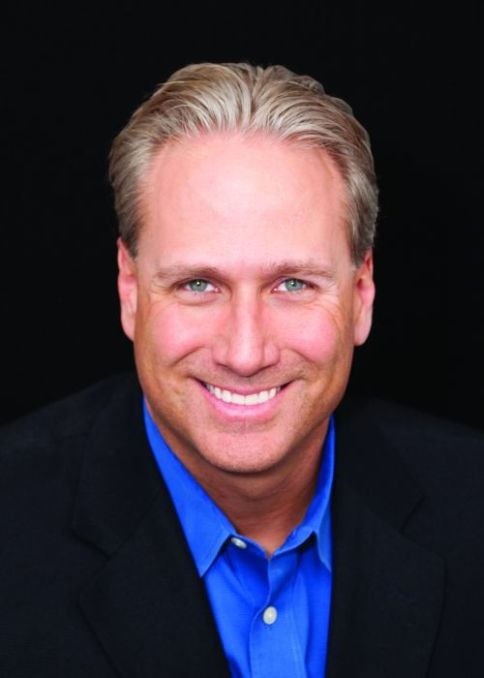Life Lessons Learned Teaching Those Behind Bars
I was excited to visit the prison to teach entrepreneurship and job search skills to the mavericks, but I was not prepared for what they would teach me.
Earlier this year I volunteered to go to prison for a weekend with other CEOs. I flew from Michigan to California and stepped into the potentially uncomfortable surroundings of a maximum-security prison.
I did this based upon one question and one data point, along with the belief that everyone deserves a second chance. The question was, “What if you were only known for the rest of your life for the worst thing you have ever done?” This question was asked to me by author and founder of Hustle 2.0, Catherine Hoke. My critical inner voice was running amuck with all the mistakes I had made over the years, while at the same time, I was remembering all the help and second chances I had received. In that moment I was grateful that my worst decisions had not derailed my life.
Ms. Hoke’s Hustle 2.0 provides incarcerated people (they prefer to be called “mavericks”) with the training and tools they need to transform their lives. The data point that Ms. Hoke shared proved that her program really did give these mavericks a second chance. The typical recidivism rate (a person’s tendency to relapse into criminal behavior) for someone released from prison is over 83%. Graduates of Hustle 2.0 have a recidivism rate of less than 7%.
I was excited to visit the prison to teach entrepreneurship and job search skills to the mavericks, but I was not prepared for what they would teach me.
The message I wanted to give them was one of hope. With the U.S. being at full employment and the fact that there are more jobs than people, it’s clear that employers are going to need to find ways to integrate with formerly incarcerated people and integrate them into their workforces. The mavericks were optimistic to learn that manufacturing and construction had many job opportunities for them.
Many mavericks also wanted to start their own businesses. Prior to our arrival, the mavericks created short business plans of their ideas. The CEOs in the room where able to give critical feedback on their plans, while inspiring them to continue to polish and hone their ideas into marketable businesses.
Most of what I learned either occurred in one-on-one conversations with these gentlemen or in a simple, yet powerful exercise called “Step to the Line.” The exercise’s purpose is to visually represent that we all have more in common than we know. There were two lines—the volunteers on one line and the mavericks on the other line. Ms. Hoke proceeded to read statements, and if the statement was true for you, you stepped to the line, if not, you stepped back from the line.
At one point, Ms. Hoke asked a question about fighting in school. In response, every volunteer stepped to the line, as did every maverick. We all shared that common act from childhood. Most mavericks were arrested for the first time under the age of 10 years old. I had school yard fights in fifth grade, and in theory, I could have been arrested as well.
I also learned that most of these men were born into environments where education, and the core values of right and wrong, were absent from Day 1. Of the 90 mavericks in the room, only two grew up in a home with 20 or more books. That means 88 men were not encouraged to read or even taught to read. They missed out on the power of books and their impact on our world view. They were robbed of the opportunity to dream of a different life than the one they saw in their homes and neighborhoods.
The amount of self-hatred and guilt carried by many of the mavericks was heartbreaking. The mavericks all owned up to the criminal acts that have put them into prison; no excuses were given. And, most of them have not forgiven themselves for their criminal actions. Not only are their bodies in a physical prison; their hearts and minds are in an internal prison. We were given the privilege of telling these mavericks, “I see you, and you are worthy of forgiveness.”
We all make mistakes to varying breadth and depth, and at some point, we are going to need a second chance. But first, we need to believe that we are worthy of that second chance. As I learned from the mavericks, many who didn’t receive a solid first chance in life, sometimes the person we need to forgive most is ourselves. Once we forgive ourselves, we have more kindness and compassion to share with others, including those with tattoos on their faces.
About the Author
Todd Palmer is the president of Diversified Industrial Staffing, a national skilled labor recruiting firm, based in Troy, Michigan.
Contact tpalmer@diversifiedindustrialstaffing.com.
Read Next
Seeing Automated Workpiece Measurement in Real Time
User-friendly inspection software for CNC machining centers was shown at IMTS 2024 monitoring measurements between and after machining while performing SPC based on recorded measurement values.
Read More5 Aspects of PMTS I Appreciate
The three-day edition of the 2025 Precision Machining Technology Show kicks off at the start of April. I’ll be there, and here are some reasons why.
Read MoreA Tooling Workshop Worth a Visit
Marubeni Citizen-Cincom’s tooling and accessory workshop offers a chance to learn more about ancillary devices that can boost machining efficiency and capability.
Read More












.jpg;maxWidth=300;quality=90)







